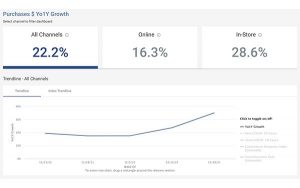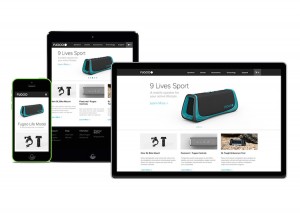Listening to customers through social media channels, is a well established practice for support of Customer Service and PR business processes. Marketing organizations are less  known for their successful attempts to use social media to engage customers. Many of these attempts were widely publicized as clumsy, some even caused an adverse reaction. This underscores how far marketing has parted from its original purpose – ‘The management process responsible for identifying, anticipating and satisfying customer requirements profitably.’ From that perspective, Customer Experience Management discipline belongs under the Marketing umbrella. Brands, that enjoy well above average growth and profitability, understand that customers don’t buy products or services – they buy experiences.
known for their successful attempts to use social media to engage customers. Many of these attempts were widely publicized as clumsy, some even caused an adverse reaction. This underscores how far marketing has parted from its original purpose – ‘The management process responsible for identifying, anticipating and satisfying customer requirements profitably.’ From that perspective, Customer Experience Management discipline belongs under the Marketing umbrella. Brands, that enjoy well above average growth and profitability, understand that customers don’t buy products or services – they buy experiences.
Marketing investments in social media can produce much better returns when they are focused on customer experience research. Instead, marketers try to use this technology in advertising mode, like traditional media channels. Below are just a few reasons that make Social Media Research of customer experience a better investment than traditional marketing research:
- Survey participants’ opinions are less valuable than the opinions of online customer reviews. Only personnel that conduct surveys are impacted by the participants’ opinions. In contrast, a very large number of prospective customers are directly influenced by a product’s online reviews. Shoppers, who are aggressively searching for social media recommendations, would not make a purchasing decision without reading the stories of customer experiences. The content of these stories is inherently more valuable for product marketing than satisfaction scores.
- The volume of a product’s customer reviews, and other social media mentions, is often substantially larger than a sample size of even a professionally conducted survey. This translates into better Confidence Interval/Margin of Error rates.
- A survey will tell you that your customers are really satisfied with their purchase and would likely recommend your brand to their friends, family members or colleagues. Whether they will or will not do it is shrouded in mystery. In contrast, over 64% of online review writers, share their recommendations with members of their social circles via Twitter, Facebook or Instagram. Actions speak much louder than words. Particularly when it comes to predicting consumer behavior.
- Social Media Research allows one to easily benchmark customer experience metrics against competitive products. Such intelligence is very valuable for product management and planning professionals who commonly straggle to predict future demand, looking at 3 months old and static numbers instead of up to date trends.
In the words of Brian Solis, the author of “WTF-What’s the Future of Business” – The future of branding is experience architecture.
Read more on Business 2 Community
(428)








